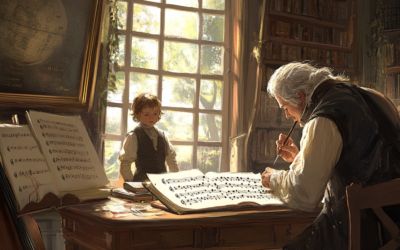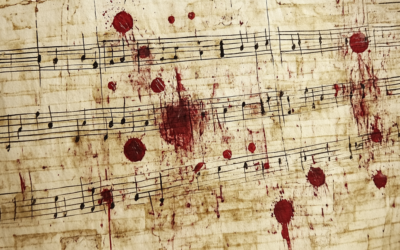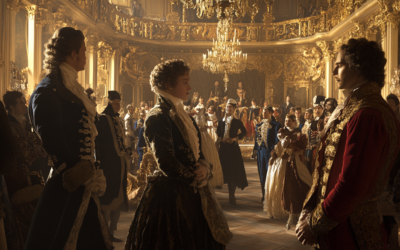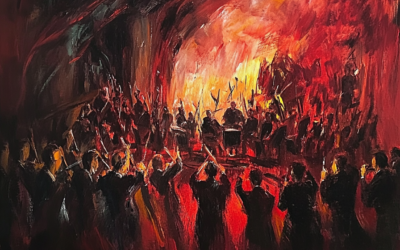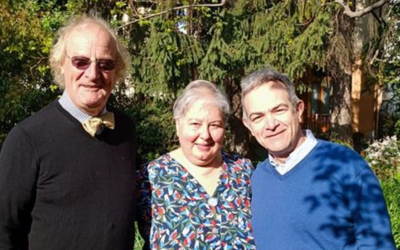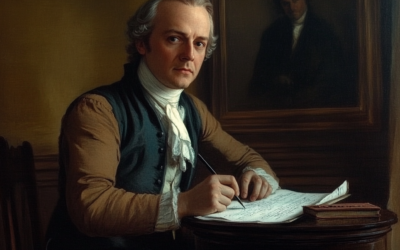New Revelations About Mozart
at the Évora Forensic Conference
At the Évora Forensic Conference, new research confirmed that both Mozart’s personal catalogue and the signatures on his violin concertos are forgeries, challenging long-held beliefs.
Mozart: The Fall of the Gods
This book offers a fresh and critical look at the life of Wolfgang Amadeus Mozart, challenging the myths that have surrounded him for centuries. We strip away the romanticised image of the “natural genius” and delve into the contradictions within Mozart’s extensive biographies. Backed by nearly 2,000 meticulously sourced citations, this work invites readers to explore a deeper, more complex understanding of Mozart. Perfect for those who wish to question the traditional narrative, this biography is a must-read for serious music lovers and historians.
"The bass clefs and signatures once thought to be Mozart’s have now been revealed as forgeries, rewriting 250 years of music history."
@MozartrazoM
Exciting Mozart-related discoveries were unveiled at the International Conference on Forensic Handwriting and Document Examination held in Évora, Portugal. In the photo, we are at the University of Évora alongside Dr. Anthony Jarvis from Darwin University in Australia and Professor Heidi Harralson, a Board Certified Forensic Document Examiner from East State Tennessee University, a renowned author in forensic document analysis for court experts.
All four of us focused on Wolfgang Amadé Mozart during our time in Évora. Besides our scientific paper on Mozart’s personal catalogue, two other groundbreaking papers were presented. The first, by Anthony Jarvis, examined the bass clefs in Mozart’s personal catalogue. Through statistical and geometric analysis, Jarvis proved that the bass clefs in the catalogue are incompatible with Mozart’s handwriting, further supporting our claim that the catalogue was not written by Mozart but is a forgery.
The second paper, presented by Professors Heidi Harralson and Martin Jarvis, scrutinised the so-called autograph signatures on the manuscripts of Mozart’s violin concertos. Their research revealed that these signatures, believed to be authentic for 250 years, are also forged.
You May Also Like
Leopold Mozart: A Portrait in Shadows
Leopold Mozart’s life was a whirlwind of ambition, deceit, and disappointment—a stark portrait of a man chasing success at any cost.
The London Pieces: Mozart or Make-Believe?
The London pieces, edited for modern tastes, lose their authenticity. Only the uncorrected originals show Mozart’s true early voice—naïve yet authentic.
The Myth of the “Viennese Classics”: Mozart’s True Heritage and the Empire’s Agenda
Mozart wasn’t the quintessential Viennese; rather, he was shaped by German heritage and an opportunistic empire that controlled music as fiercely as it did its people.
The Nationalistic Roots of the Philharmonic Legacy
Under Goebbels, the Berliner Philharmoniker became an instrument of Nazi propaganda, framing German composers as the supreme guardians of musical heritage.
Australian Scholars Confirm Our Findings on Mozart’s Forged Catalogue
Professor Martin Jarvis of Darwin University confirmed our long-held findings that Mozart’s personal catalogue is a forgery, during his recent lecture The Mozart Scam. Forensic analysis continues to unravel the myths surrounding Mozart’s legacy.
The Italian Journey
The Mozarts’ Italian journey of 1769 was not a leisurely Grand Tour but a strategic mission driven by ambition, navigating the treacherous roads of 18th-century Europe in pursuit of fame and fortune.


